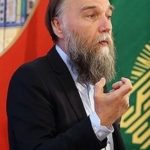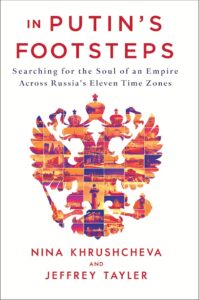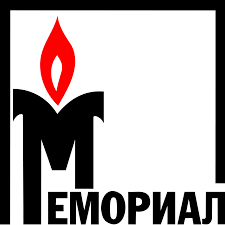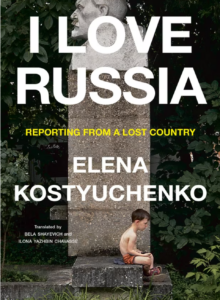As the @NobelPrize-winning Belarusian writer @SAlexievich recently put it to Nina L. Khrushcheva, Vladimir Putin wins “first prize in absurdity.” He “wants to be the worst barbarian on the European continent.” https://t.co/jj4J7l2Jr6
— Project Syndicate (@ProSyn) October 25, 2023
An article that appeared in August on an international news outlet, Pressenza, recycled a false Russian claim that the West was looting religious relics and art from a monastery in Ukraine’s capital, Kyiv, one of the holiest sites in Russian Orthodoxy. The article stands out, U.S. officials said, not because of what it claimed — but because of its source and intended audience, Steven Lee Myers writes for The New York Times:

Wikipedia: Alexsander Dugin
State Department officials have linked the article to what they describe as a covert information operation to spread Russia propaganda in Central and South America by producing articles that appear to originate with local media organizations, not the Russian government. The operation is nascent, but the department’s Global Engagement Center is disclosing the influence campaign in hopes of blunting its effect in a region where Russia has sought to discredit the United States and erode international support for Ukraine.
The State Department released a report last week about the activities in Brazil of an international organization, New Resistance, which embraces the views of Aleksandr Dugin, a former Soviet dissident who has become a prominent advocate of Russia’s imperial ambitions, Myers adds. “Russia has exploited distrust of the United States by characterizing the latter as intent on resource extraction and endorsing economic policies poorly suited to Latin America, offering Russia as a friendly, less intrusive alternative,” said another report released last week by the United States Institute of Peace. RTWT
 The Kremlin is pressing on with disinformation campaigns meant to undermine internal unity, says Valerii Pekar, a co-founder of the Nova Kraina Civic Platform, the author of four books, an adjunct professor at the Kyiv-Mohyla Business School and a former member of the National Reform Council. One day the democratic processes in the western countries will bring to power opponents of Ukraine in a critical number of states, just like in Slovakia, he warns in New Eastern Europe.
The Kremlin is pressing on with disinformation campaigns meant to undermine internal unity, says Valerii Pekar, a co-founder of the Nova Kraina Civic Platform, the author of four books, an adjunct professor at the Kyiv-Mohyla Business School and a former member of the National Reform Council. One day the democratic processes in the western countries will bring to power opponents of Ukraine in a critical number of states, just like in Slovakia, he warns in New Eastern Europe.
The Institute for Internet Development, a Russian organization led by Aleksei Goreslavsky, who previously oversaw internet policy at the Kremlin, has indicated that it planned to spend the equivalent of $32 million this year on information efforts surrounding the war, according to two other State Department officials, who under department policy spoke on the condition of anonymity, The NYT’s Myers adds.
‘These are the dark forces’
Those living in Russia today wake up every morning to a new chapter of 1984. “This must be a nightmare,” they tell themselves; yet it is all too real, adds Nina L. Khrushcheva, Professor of International Affairs at The New School, the co-author of In Putin’s Footsteps: Searching for the Soul of an Empire Across Russia’s Eleven Time Zones.
 Consider the recent charges brought against Oleg Orlov (above), the co-chair of the Nobel Prize-winning human-rights organization Memorial, for “discrediting the Russian armed forces,” she writes for Project Syndicate. During a courtroom hearing on October 11, prosecutors, appalled at Orlov’s willingness to stand up for his convictions, accused the defendant of having “a heightened sense of justice and a complete lack of self-preservation instinct.” The prosecutors have also resorted to “punitive psychiatry,” by calling for Orlov to undergo the kind of evaluations carried out in the 1970s.
Consider the recent charges brought against Oleg Orlov (above), the co-chair of the Nobel Prize-winning human-rights organization Memorial, for “discrediting the Russian armed forces,” she writes for Project Syndicate. During a courtroom hearing on October 11, prosecutors, appalled at Orlov’s willingness to stand up for his convictions, accused the defendant of having “a heightened sense of justice and a complete lack of self-preservation instinct.” The prosecutors have also resorted to “punitive psychiatry,” by calling for Orlov to undergo the kind of evaluations carried out in the 1970s.
“These are the dark forces,” Orlov warns. We are dealing with people who want “full revenge for the fall of the Soviet empire.”
In 2015, the Minsk Center for Strategic and Foreign Policy Studies published a report dedicated to Russia’s new geopolitical strategy. Its core finding was that the Kremlin deliberately stirs up instability in neighboring countries to reduce the influence and presence of other powers, notes analyst Kseniya Kirillova.
Russian experts like Vasily Kashin of the Higher School of Economics, now seek to argue that wars represent a “return to the normalcy which existed before the period from the 1970s to the 2010s,” and that the last decades of peaceful coexistence were an aberration caused by “rose-colored glasses,” she writes for the Center for European Policy Analysis.
 In this context, propagandists will seize the opportunity to argue that conditions in Russia are no worse, and perhaps even better, than elsewhere, Kirillova adds. Of all the Kremlin’s unfulfilled aspirations for global chaos, this one appears to be the most pragmatic, and it suggests that Moscow will persist in its efforts to maximize global destabilization.
In this context, propagandists will seize the opportunity to argue that conditions in Russia are no worse, and perhaps even better, than elsewhere, Kirillova adds. Of all the Kremlin’s unfulfilled aspirations for global chaos, this one appears to be the most pragmatic, and it suggests that Moscow will persist in its efforts to maximize global destabilization.
Elena Kostyuchenko’s new book, “I Love Russia,” chronicles the state of Russian society under Putin’s authoritarianism, particularly the severe hardships faced by those living on its fringes, The Washington Post reports.
The concepts of hard, soft, and sharp power in international relations may need to be reassessed to capture the actions of criminocracies, like Putin’s Russia, analysts Ireneusz Pawel Karolewski and Viktoria Kaina write for Transitions Online.
Eduardo Salcedo-Albaran drew attention to the particular threat posed by modern states that are shaped by crime. In such states, formal and legal democracy is installed; there are elections and parliaments; and there are also laws and courts. However, behind this facade of government, political power is captured by members of criminal networks. RTWT
“What we’re trying to do is expose #Russia’s hidden hand,” @TheGEC‘s @JamesP_Rubin told @stevenleemyers @nytimes https://t.co/DDcyD0cP7w
— Democracy Digest (@demdigest) October 26, 2023







